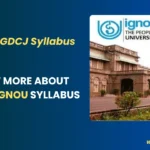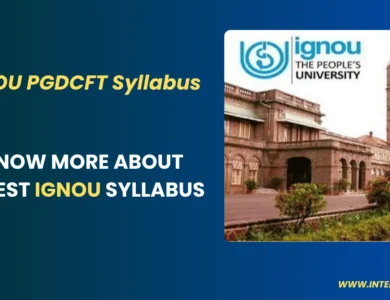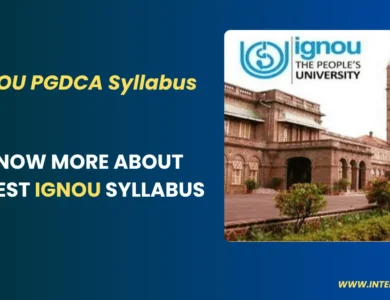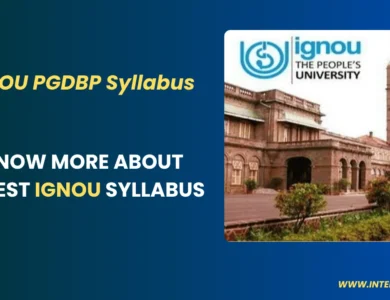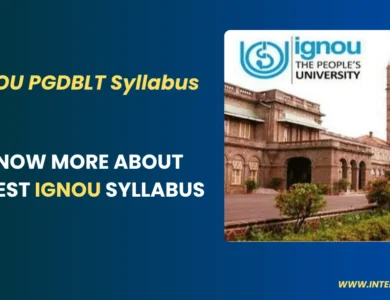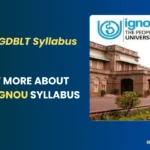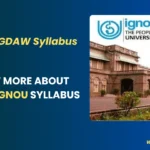IGNOU BTS Syllabus 2025
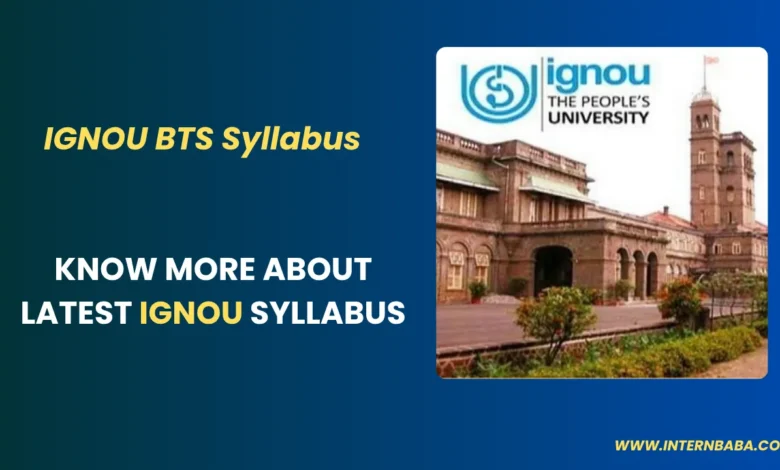
Planning to pursue a Bachelor of Arts in Tourism Studies (BTS) from IGNOU? You’re on the right path toward building a dynamic and promising career in the tourism sector. The tourism industry is one of the fastest-growing sectors globally, and a degree in this field opens doors to multiple exciting career opportunities. But before diving in, it’s crucial to understand the structure and expectations of the program. IGNOU, known for its flexible, affordable, and inclusive distance learning programs, offers a well-designed BTS curriculum. This article will walk you through the updated IGNOU BTS syllabus for 2025, highlighting its structure, subjects, credit distribution, and much more. Whether you’re a working professional, a recent 12th pass-out, or a student from a rural or urban background, this comprehensive guide is tailored to meet your academic planning needs.
Overview of IGNOU BTS Programme
Program Name: Bachelor of Arts (Tourism Studies)
Program Code: BTS
Duration: Minimum 3 Years, Maximum 6 Years
Medium of Instruction: English & Hindi
Eligibility: 10+2 or its equivalent
Credits Required for Completion: 96
The BTS program from IGNOU aims to equip students with a strong foundation in tourism principles, planning, and operations. The course is structured to blend theoretical learning with practical exposure, ensuring that graduates are industry-ready.
Key Objectives of the BTS Programme
- To provide a comprehensive understanding of tourism, including its historical, cultural, economic, and social dimensions.
- To build competencies in managing tourism-related services such as travel agencies, tour operations, and event management.
- To enable learners to apply concepts in real-world tourism scenarios through fieldwork and project assignments.
- To promote entrepreneurial thinking and innovation in the tourism and hospitality sectors.
Detailed IGNOU BTS Syllabus Structure (2025 Edition)
The BTS syllabus is divided into three academic years, comprising core tourism subjects, foundation courses, and project components. Below is the semester-wise breakdown:
Year 1: Foundation and Core Concepts
| Course Code | Course Name | Credits |
|---|---|---|
| TS-1 | Foundation Course in Tourism | 8 |
| TS-2 | Tourism Development: Products, Operations and Case Studies | 8 |
| TS-3 | Management in Tourism | 8 |
| TS-6 | Tourism Marketing | 8 |
| FEG-1 | Foundation Course in English-1 | 4 |
| FEG-2 | Foundation Course in English-2 | 4 |
| FHS-1 | Foundation Course in Hindi | 4 |
Total Credits (Year 1): 44
This year introduces students to basic tourism and business concepts while also focusing on language proficiency through English and Hindi foundation courses.
Year 2: Applied Tourism and Interdisciplinary Knowledge
| Course Code | Course Name | Credits |
| TS-4 | Indian Culture: Perspective for Tourism | 8 |
| TS-5 | Ecology, Environment and Tourism | 8 |
| TS-7 | Human Resource Development | 8 |
| AHE-1 | Human Environment | 6 |
| EPS-1 | Foundation Course in Political Ideas and Institutions | 8 |
| BHDF-101 | Hindi Compulsory | 8 |
Total Credits (Year 2): 46
This stage emphasizes cultural, environmental, and political awareness while diving deeper into tourism’s practical and HR dimensions.
Year 3: Advanced Tourism Studies and Projects
| Course Code | Course Name | Credits |
| TS-10 | Tourism Impacts | 8 |
| TS-11 | Tourism Planning and Development | 8 |
| TS-12 | Tourism Products: Design and Development | 8 |
| TS-13 | Tourism Operations | 8 |
| PTS-4 | Project Work | 8 |
| PTS-5 | Project Work | 8 |
Total Credits (Year 3): 48
Students explore tourism planning, design, and the real-world impact of tourism. The two compulsory project courses ensure practical exposure and industry interaction.
Credit System and Assessment Methodology
IGNOU follows a modular credit-based system. Here’s how it works:
- Total Credits Required: 96
- Credit Value: 1 credit = 30 study hours (including reading, assignments, and practical work)
- Evaluation Methods:
- Term-End Examinations (TEE)
- Tutor Marked Assignments (TMA)
- Project Work in Year 3 (PTS-4 and PTS-5)
Assignments play a crucial role in your final grade, so it’s essential to submit them on time. Projects are evaluated both on written submissions and viva-voce, depending on IGNOU guidelines.
Language Medium and Flexibility
- Courses are offered in both English and Hindi, making them accessible to a diverse student population.
- Students have the option to study at their own pace within a 6-year maximum duration.
- Support is available through study centres, regional centres, and online resources including IGNOU’s eGyankosh and the student portal.
Career Opportunities After Completing IGNOU BTS
Graduates of the IGNOU BTS program are well-equipped for a wide range of roles in the travel and tourism sector. Some popular job profiles include:
- Travel Consultant
- Tour Operator
- Ticketing Executive
- Event Manager
- Travel Blogger/Writer
- Tourism Marketing Executive
- Customer Support in Airlines or Cruise Lines
- Government Tourism Officer
With additional certifications or postgraduate qualifications, students can even pursue academic or research-based careers.
Advantages of Studying BTS at IGNOU
- Affordable fee structure compared to private universities
- UGC-recognized degree valid for government jobs and further education
- Access to extensive resources through eGyankosh and digital learning platforms
- Opportunity to learn while working – suitable for professionals
- Pan-India presence with over 67 regional centers
FAQs About IGNOU BTS Programme
Q1. Is IGNOU’s BTS degree valid for government jobs?
Yes, IGNOU is a UGC-approved university, and its BTS degree is valid for all types of jobs, including competitive government roles.
Q2. Can I complete the BTS program in less than 3 years?
No, the minimum duration to complete the program is 3 years. However, you can take up to 6 years if needed.
Q3. What is the examination pattern for IGNOU BTS?
Each course includes Term-End Exams (conducted in June and December) and Tutor Marked Assignments (TMAs). Projects are mandatory in the final year.
Q4. Are there any practical or field components in this course?
Yes, especially in the final year, students are required to complete PTS-4 and PTS-5, which involve project and fieldwork-based evaluation.
Q5. Can I pursue a Master’s degree after completing BTS from IGNOU?
Absolutely. After completing BTS, students can pursue an MTTM (Master of Tourism and Travel Management), MBA, MA in Tourism or related fields.
This updated and detailed guide to the IGNOU BTS syllabus 2025 is meant to be your go-to resource when planning your academic and career path in tourism studies. Keep visiting IGNOU’s official website for new circulars, exam notifications, and project guidelines to stay ahead in your academic journey.

